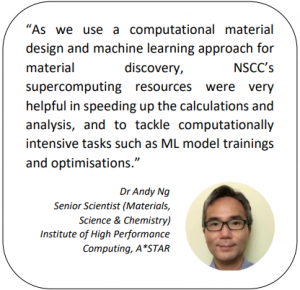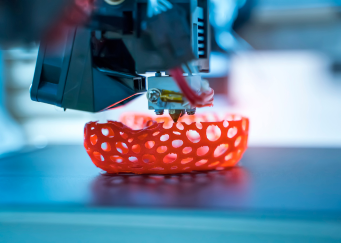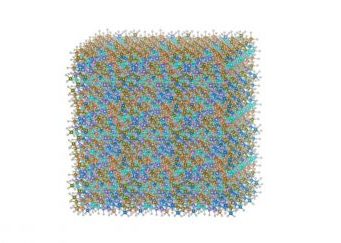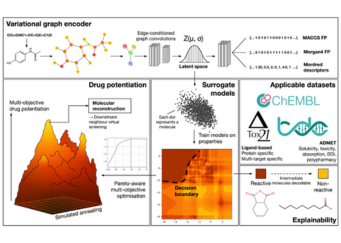Researchers from A*STAR IHPC leverage supercomputing resources to improve the performance of lithium-ion battery technology
With the ever-increasing demand in energy storage media for applications such as Electric Vehicles (EVs), the energy density of current lithium-ion technology remains moderate leading to strong interest in developing better high-energy batteries globally. Sulphur-based batteries and lithium-metal batteries are some promising novel battery technologies with high-energy density.
However, bottlenecks in these technologies at the materials level have yet to be overcome. Additionally, battery chemistry is highly complex and a deeper understanding is required in order to improve it. For instance, the polysulfide shuttling effects are harmful to sulphur-based batteries therefore the need to design an effective host material for polysulfides becomes all the more crucial (Fig. 1).


This has inspired a team of researchers at A*STAR’s Institute of High Performance Computing to embark on research to identify potential battery materials that can improve the performance of these novel battery technologies and help in its commercialisation. The objective of the project is to develop novel materials for advanced high-energy density and safer post-lithium batteries using a computational materials design approach.
The team is utilising a multiscale computational approach to tackle the challenges at different lengths and time scales. First-principles atomistic simulations provide insight into the material’s intrinsic properties while dynamics simulations provide the details of the change of materials during operation. With improved batteries, EV adoption can be accelerated, which could help in mitigating global warming.
To find out more about the NSCC’s HPC resources and how you can tap on them, please contact [email protected].
NSCC NewsBytes June 2023
Other Case Studies
Using Digital Twin Technology to Optimise the Industrial 3D Printing Process
Researchers from the Institute of High-Performance Computing (IHPC) are utilizing supercomputers to create a digital twin that furnishes users with comprehensive information...
Leveraging machine learning and supercomputers to accelerate new materials development
Researchers from NUS utilise high performance computing resources to accelerate the discovery and development of new materials. The development of novel functional materials has...
Advancing Drug Discovery Research using NSCC HPC resources
Researchers from Nanyang Technological University (NTU) are applying variational graph encoders as an effective generalist algorithm in computer-aided drug design (CADD)....


